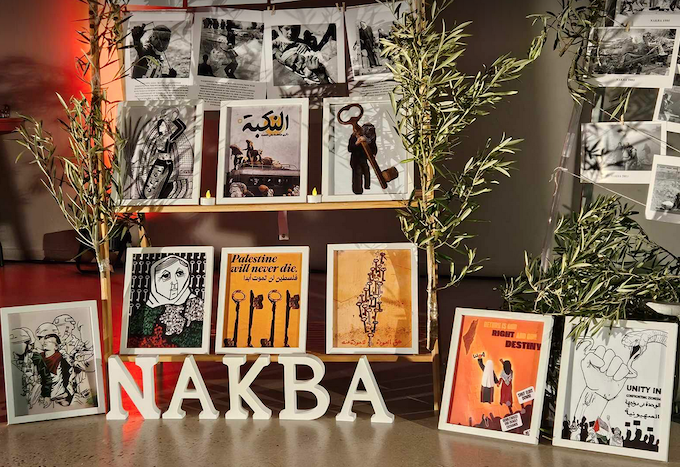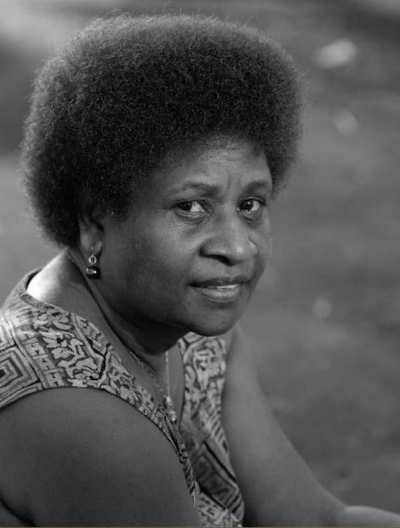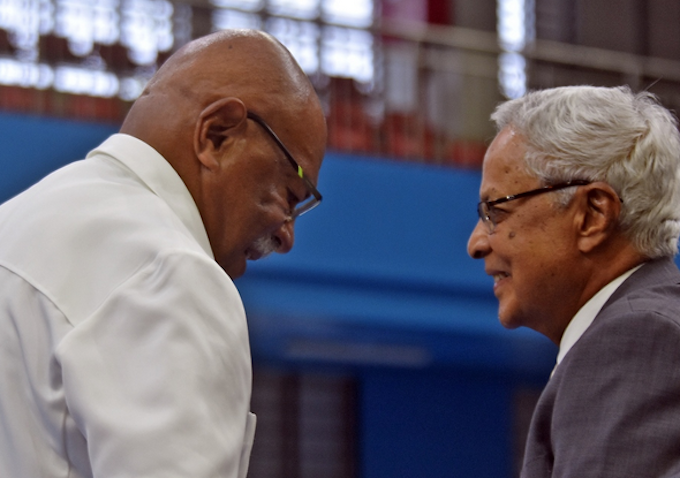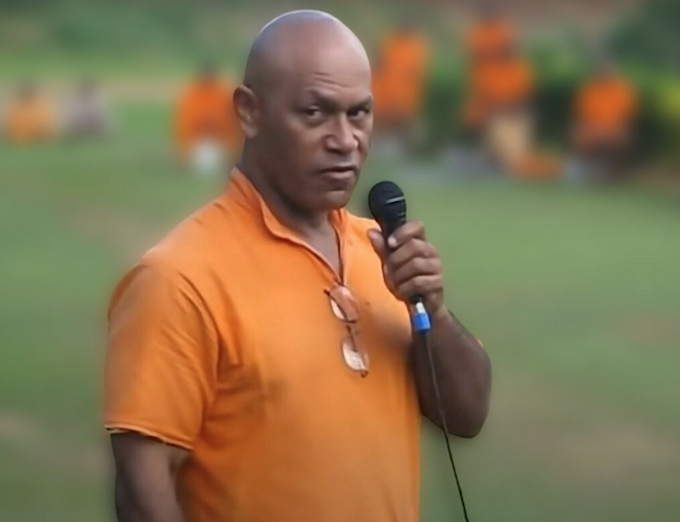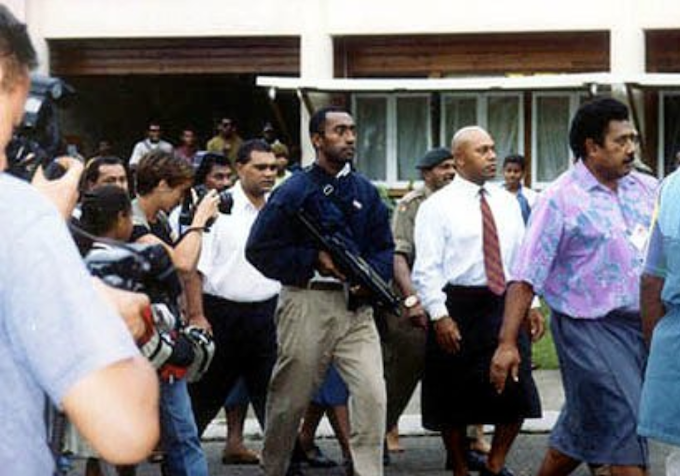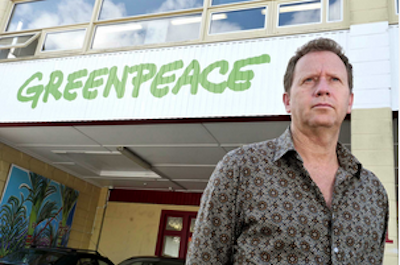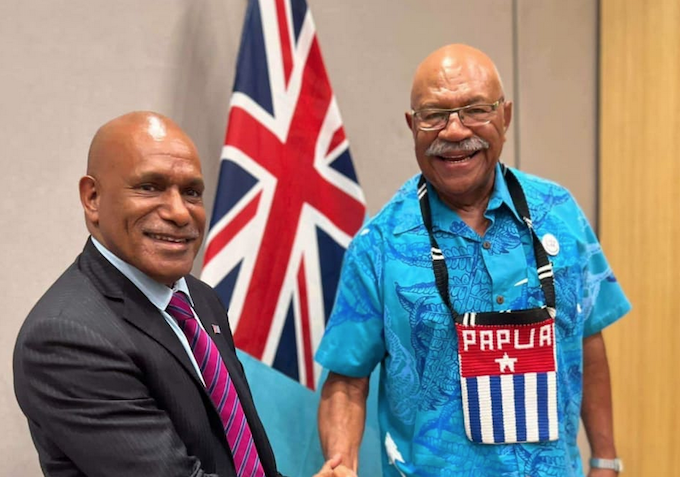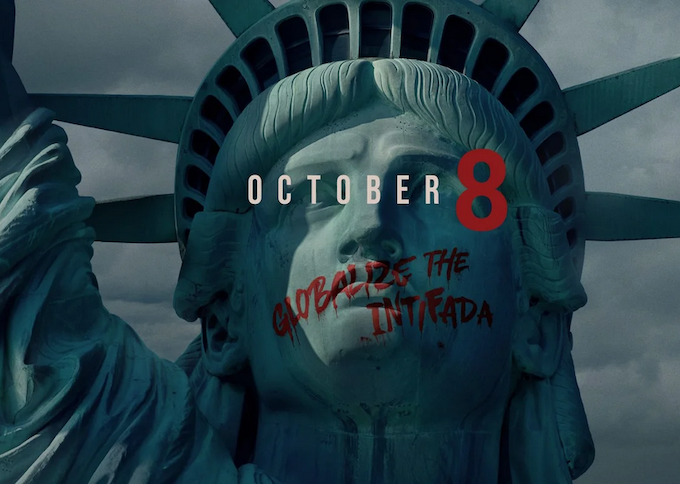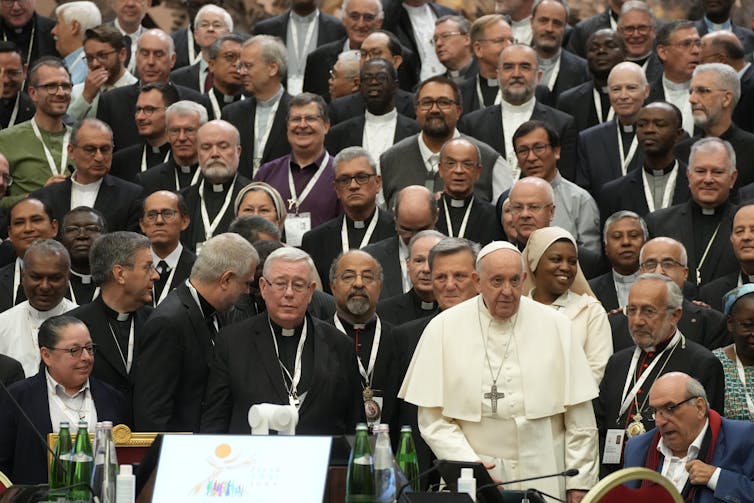
The Golden Calf – Jewish Achilles Heel
My first thought on seeing Peter Beinhart’s title — Being Jewish after the Destruction of Gaza: A Reckoning (2025) — was: Argh. More Jewish angst, holier-than-thou hand-wringing, but leading nowhere. Half-way through I had completely changing my mind. Angst, yes. But lots of meat to chew on, ok, spitting out some grissle, but it was mostly intelligent, informative, and even inspiring (for a goy no less). Beinhart marshalls statistics that confirm my own extreme anger at not just Jews but anyone who does not mobilize themselves to fight this ongoing, LIVE, genocide.
The West’s indifference to an ongoing genocide is more than shameful. Israel participates in Eurovision, its sports teams compete with only the occasional MUSLIM refusing to spar with his/her competitor from the genocidal state. Almost no one besides Muslims is concerned, donating charity, actively opposing Israel.
None of my five siblings can be bothered, unless buying Palestinian olive oil counts. All of us are ‘rich’. I’m rich, even if I go to a food bank. It’s all in your mind. The poor are always more generous than the rich. Shame on anyone who ignores genocide just because they feel helpless to stop it. Beinhart’s ashamed to be Jewish. I’m just as ashamed as a non-Jew. One of my favourite Muslim hadiths (in my free-verse version): Speak truth to an unjust ruler; if that’s impossible, then talk about it with others; if that’s impossible, then at least think about it, write about it, use any chance to protest.
The whole world is reliving 1930s-40s Germany, 1960s US deep south and Vietnam, though it probably feels even worse now to anyone who cares, as we watch live, day after day, already two years, the IDF deliberately slaughtering civilans (even beheading babies while falsely claiming it is Hamas doing this). How can Israelis, Jews, being so consciously, conscientiously EVIL?
And guess what? Anti-Jewish feelings, acts have gone through the roof. Nice educated college students angrily call out kippa-wearing Jewish classmates as supporters of genocide. Which they are. I’m too polite to ‘speak truth’ there (there is a 0.1% chance the kippa-wearer doesn’t actually like the horrors being perpetrated IN HIS NAME). The Zionist lobby has locked up free speech in the interests of genocide. If you criticize Israel, you are ANTI-SEMITIC, so kippa-wearers are walking targets. Beware. Take it off till the genocide stops or you are fair victim. Better yet, join an encampment, a demo.
 Beinhart would be shocked at my savagery. Tsk, tsk. He protests this conflation, but, sorry, the tyrants in power aren’t listening to your sweet nothings. But my bitching and anger will turn to love if Israel stops acting like Nazi Germany. So don’t blame angry goys for not dotting your ‘i’s.
Beinhart would be shocked at my savagery. Tsk, tsk. He protests this conflation, but, sorry, the tyrants in power aren’t listening to your sweet nothings. But my bitching and anger will turn to love if Israel stops acting like Nazi Germany. So don’t blame angry goys for not dotting your ‘i’s.
That is one of his weaknesses as a fervent, practicing Jew. Haven’t you figured out yet, Peter, that Judaism is dead? Israel killed it, along with (still counting) millions of dead, millions crippled and millions more displaced Palestinians, not to mention Iraq, Syria, Lebanon. Neturei karta and Satmar are nice but have no effect. They are the token anit-Zionists to prove that all Jews aren’t evil, but what good does that do except hobble what should be fierce pressure on all Jews to do something to stop the madness?
Silver bullet for peace
Beinhart grew up in South Africa under apartheid so he doesn’t need the Israeli version to understand the evil at play. Afrikaners saw black Africa as barbarism and dysfunction, and justified themselves, their violent repression of blacks as second class drudges(not citizens), by arguing the blacks would kill the whites otherwise.
Now, looking back, he sees the same false story in northern Ireland and in the US south. And the proof that this story is false is that in each case, when the oppression ends with liberation, the armed resistance movements of the blacks in Africa and the US, the Catholics in northern Ireland melted away. That’s what even our pathetic Conciliation Commission in Canada with our genocided natives was all about. We Canadians have done a half-assed job of reconciliation, but still the natives don’t slit our throats.
He sees the proof in Israeli Palestinians, who are still second class drudges but CITIZEN drudges. That’s the key. They have a vote, political parties, even representation in the government on rare occasions. That’s all the Gazans and West Bankers want. To be treated like human beings, citizens, even if still second class. That is still wrong, but is a huge step forward. Imagine if Israel made everyone citizens. The thought of a liberated Middle East (NOT Trump’s Club Med) is exhilarating. Do Israelis need reeducation camps, like in Vietnam after the liberation in 1975? Maybe. Certainly new history books. Not their perverse history of victimhood, as Beinhart jokingly summarized in his chapter one title: They tried to kill us, we survived, let’s eat.
Beinhart was/is himself a Zionist, though now recondite. He loves Buber and others who promoted a caring Zionism. Sorry, Peter. That gentle version never had a chance before Israel was declared the Jewish State, and certainly has no chance now. There were similarly National Socialists who promoted a less toxic Nazism, Strasserism, but they were purged by Netanyahu (sorry, Hitler) or fled abroad. Speaking of which, Toronto has the largest Israeli population outside the ‘fatherland’. Now hundred(s) of thousands of Israelis are abandoning ship, the nicer ones, who, if they had stayed, might have tried stopping the madness. Instead they leave behind the bloodthirsty, murderous settlers, toxic American, British and Russian fanatics, not taking any responsibility themselves as Jews for their Jewish tribe’s crimes.
You can’t have your Purim cookie and eat it

Purim celebrations: Israelis’ love of genocide derives from the Purim story of the slaughter of 75,000 Persians ‘in self-defense’, using Esther (concubine/ prostitute) as a honey-trap. The cookies represent tyrant Haman and his sons’ ears.
Judaism used to be the exalted granddaddy of monotheism. Christians took the Old Testament (OT) with all its Jewish supremacism as the truth. Though Jews were feared and reviled as outsiders, usurers, schemers, the religion was always respected, along with the prophecy that Jews will ‘go back’ in the endtimes.
This vague notion became a fact in the 1820s, a British imperial project, a 9th Crusade, a proto-Israel in the minds of British Christian Zionists, whose love-hate for Judaism-Jews convinced them to export all Jews to the Holy Land. Israel was conceived as the pet project of (very anti-Jewish) Christian-Zionist Lord Palmerston, which came to life with the invention of the steamship, the leading-edge tech. Palmerston immediately used it to — guess what? — wage war, obliterating Akka (Crusader Acre, Hebrew Akko) in 1840 with British cannons and this new fangled hot air machine (the Brits needed Mount Lebanon’s high-grade coal to fuel their steamships). ‘Not a sign of endtimes but as a new era of prosperity.’1
The new war-tech allowed Britain to seize control of Egypt (the Suez Canal) by the 1870s. Capitulations to French, British, Russian and US trade and Christian agents in the Levant under the Ottomans prepared the way for divvying up the Ottoman spoils when the time was ripe (1918). So when wealthy Rothschilds-type Jews decided they would like to dabble in creating their own nation, it was readily accepted by imperial Britain. From the first Zionist conference in 1897 to the Balfour declaration in 1917, Israel became the key actor in a new Crusade to ‘free’ the Holy Land (and its oil riches).
The Brits could get rid of their Jews, and those rich Jews could have their very own Jewish state. Win-win. WWII was the final touch, the get-out-of-jail card, a passport to a racial state for the Chosen People, a state without morals, i.e., f*#k the world, international law, kill, kill, steal, steal, dispossess, trick, torture until – poof! – no more natives standing in your way. That was more or less British colonial policy anyway. There were no ‘nays’, or at least none that got any traction in Westminster or the mainstream press.
In the process, Judaism has been reduced to just an old boy’s club, a way to get the edge over goys, who have no rich, influential tribe to help them move up the greasy pole. Hillel House won’t have a speaker who criticizes Israel, Zionism, but undermining belief, promotion of atheism? No problemo.
Wake up Peter! You admit that even US Jews, the heretics, are arrested now, deplatformed, kicked out of university for protesting Israel, excommunicated from the tribe, but still argue that there is no justification for targeting Jews as A TRIBE. But Israel preempted you. Israel wants kippa-wearers to be targetted. Which means that kippa-wearing Jews who parade their Jewishness (Israel-lovers) are by default part of the problem – unless they are vocal opponents of Israeli war crimes and their kippa is to defy the craven kippa-wearing Zios. You can’t eat your blood-soaked Purim cookies, shaped as heads of the decapitated Palestinians (sorry, Persians) and have them too.
Beinhart argues eloquently in his dynamite last chapter, Korach’s children, that Moses’s opponent, Korach (All the community are holy, all of them, and God is in their midst.), was indeed wrong for claiming that the tribe’s chosenness meant a ‘free pass’. That they didn’t need Moses and his tiresome commandments demanding that they be good Jews. For Moses, chosenness meant responsibility for your own sins. Korach is identical to the Zionists today. Your genes (or very rigorous conversion, including Zionism) give you a ‘free pass’. Your only ‘responsibility’ is to defend the state of Israel, which can do no wrong as it’s, well, ISRAEL. So just shut up and let’s eat our bloody cookies!
This is idol worship. The Jewish state replaces God in a secular Israel. This isn’t the first time Jews have been called on the carpet for worshipping idols. The Golden Calf is just the most colourful biblical story, and the consequences are always dire. Lots of exile as punishment. In fact, Jewish ‘history’ is one long litany of Jews screwing up and God getting very angry and punishing them. So stop playing victim. Own up to your sins. Stop worshipping idols.
The other jewcy bits are the OT genocides. The Zionist Mephistopheles Ze’ev Jabotinsky, and Israel’s first Prime Minister Ben Gurion, both atheists, both loved the story of Joshua, who delivered the ‘promised land’ by wiping out all the Palestinians of the day, the Amalek.2 The Zionists celebrate this original sin/theft and use it to justify their present-day genocide. Purim is the icing on the cake.
Beinhart mentions Jewish supremacists of the past – 11th century Spanish poet Yehuda Halevi (living happily under Islamic rule in Andalou), the 16th century rabbi Maharal of Prague, 18thc Hasids in Poland, the list goes on. Idols are the Jews’ downfall. Hello, Israel. And hello, anti-Jewish prejudice. When you see yourself as superior to the goys around you, you invite resentment. Beinhart doesn’t go the extra mile here, dismissing a few dreamers in Moorish Spain or the Silesian shtetl. They didn’t have the power to do anything about it. Sure, but their supremacist behaviour continually bred resentment. Pogroms against Jews? Yes, but by isolating your tribe, insisting on being superior, when things go wrong, Jews make great scapegoats. Surprise, surprise.
Enter, stage right
Jews live in a different world now, where they are the richest and most powerful tribe around, with steel-plated armour against criticism, and where you can’t say any of this in mainstream media without being roasted, sliced and eaten like a Purim cookie. So Beinhart’s soul-searching and his new-found Palestinian friends is all very well, but not enough. He just can’t give up his youthful devotion to Israel as the Jewish state. Pigs really can fly.
*He quotes IF Stone: Israel is creating a kind of moral schizophrenia in world Jewry, depending on the maintenance of secular, non-racial, pluralistic societies but championing a Jewish state in which the ideal is racial and exclusionist.3
*bemoans Brandeis University for banning a pro-Palestine group, so students could ‘feel safe in their Jewish identity.’
*is appalled at how Israel is cozying up to neo-fascists in Europe and America, abandoning Jewish progressives.
And still doesn’t see that an ethnic state is exactly what Hitler created, that the problem is with Zionism. An ethnic state stinks of colonialism or worse. That era ended in the 1960s-1980s with the liberation of Africa. Israel is dragging the whole world back into the worst form of that nightmare world, Hitler’s Germany, bent on wiping out Amalek/Untermenschen and colonizing the world. But then Beinhart is already pilloried and denied his soapbox in Hillel House and other Jewish-controlled places, so thank you Peter for going as far as you go.
As I read, I couldn’t help comparing Judaism and Islam. While Judaism is a closed religion, not seeking converts, Islam actively promotes conversion. When you become a Muslim (born or converted, it’s the fastest growing religion), you become part of the ‘chosen’. But Islam means ‘submission’. And all colours are welcome. O mankind, indeed We have created you from male and female and made you peoples and tribes that you may know one another. Indeed, the most noble of you in the sight of Allah is the most righteous of you.(49.13). Of course there are bigoted Muslims, tribal Muslims, oily Muslims, but arrogance and racism are universally frowned on. There is no celebration in the Quran or Hadith of massacring Amalek as a template for committing genocide. It’s the OT that is genocidal, jingoistic.
There are ‘Islamic states’, which are riddled with problems, but unlike in Israel, there are no Untermenschen. All states are suspect in both Judaism and Islam, especially monarchies, which were the normal state structure of two millennia ago, and which often ended up with ‘divine right’ kings who acted like God, idols, and brought about their own demise. The Prophet Muhammad presciently warned against kings, not anointing his blood relative Ali as his inheritor, calling on his followers to elect their own ‘caliph’. Islam was almost destroyed when a later caliph Muawiya appointed his incompetent son Yazid to succeed him. As for Muslim rule, Jews have always lived well under Islamic rule, from Spain to Afghanistan.
Until Israel reared its ugly head. That angered all Muslims, which delighted Zionists, whose plan was to scare all diaspora Jews into coming to Israel. We killed them, let’s eat. It didn’t work, but it did destroy precious ancient Jewish cultures throughout the Middle East, and brought suddenly unhappy Mizrahi Jews to live as second class Jewish citizens, learn an artificial Hebrew, under ‘white’ European Jews as masters.
So, for all the backsliding of Muslims over the past millennium and a half, idol worship was never one of its failings. Muslims know that being ‘chosen’ means hard work. Fasting, praying, charity, pilgrimage, study. Lazy Muslims don’t brag about their failings. An atheist Muslim is an oxymoron. This contrasts sharply with not only Jewish centres like Hillel, but even Christian churches, some of which preach atheism.
2025 – Palestine’s year
Palestine has finally made the bestseller list. Another fine book, Andreas Malm’s The Destruction of Palestine Is the Destruction of the Earth, relates the origins of Israel, how the British invention of the steamship was the technological breakthrough of the day, giving British a few decades of ocean supremacy, feeding the new racial supremacism that saw European smarts capturing (literally) the entire world, to colonize, exploit, destroy cultures, peoples, genocide, all the great things that made us westerners the new ‘chosen race’. Israel should be celebrating its bicentennial, with Akko the capital.
Malm poignantly goes the extra miles on the environmental destruction that Israel is responsible for. Nice irony: Israel is poisoning itself by dropping toxic bombs just a few miles from Tel Aviv. Nature knows no bounds. It also is the incentive for all the Arab oil sheikhs to blow $100s of billions on weapons of mass destruction — which all our high-faluting hypersonic things are in fact. US-Israel is the world’s incentive to arm yourself to the teeth, ironically, with US-Israeli weapons intended to protect them from US-Israel. Imagine a world with no Israel, or rather with Palestine-Israel. No need for the military industrial complex. We might actually save planet Earth.
And Egyptian emigre Omar El Akkad’s One Day, Everyone Will Have Always Been Against This. A tweet by El Akkad, a slightly longer version of his catchy title, got 10m hits, so Omar understandably whipped off a book. Cool. He came to the West like all immigrants, thinking it would be heaven, but found it was a big pile of you-know-what. You don’t have to be Palestinian, Arab, Muslim to be the brunt of the lies and bigotry.
Beinhart is still naval-gazing, the nice little Jewish boy, top marks, loved granny (who loathed what he wrote to the bitter end). Has he bothered reading up on Islam? He never considers the possibility that the real reason Israel MUST be Jews-only is because Islam is a far better version of monotheism, alive and well despite two centuries of imperialist occupation and, now, genocide. No racism, no idols, real chosenness a la original Judaism, where it means responsibility, humility before God, genuine service to ‘the nations’. He finally started making Palestinian Muslim friends and was delighted to find them warm, generous, and spiritual. He was recently on a panel with UCLA law prof Khaled Abou El Fadl. I felt I was in the presence of a profound religious voice. I think, hope Beinhart is still a work in progress.
ENDNOTES:
1 Andreas Malm, The destruction of Palestine is the Destruction of the Earth, 2025.
2 Possibly derived from the Egyptian term *ꜥꜣm rqj “hostile Asiatic”, possibly referring to Bronze Age semitic Shasu tribesmen from around Edom.
3 Peter Beinhart, Being Jewish after the destruction of Gaza, 104.
The post
Israeli Jews’ Love of Genocide first appeared on
Dissident Voice.
This post was originally published on Dissident Voice.




